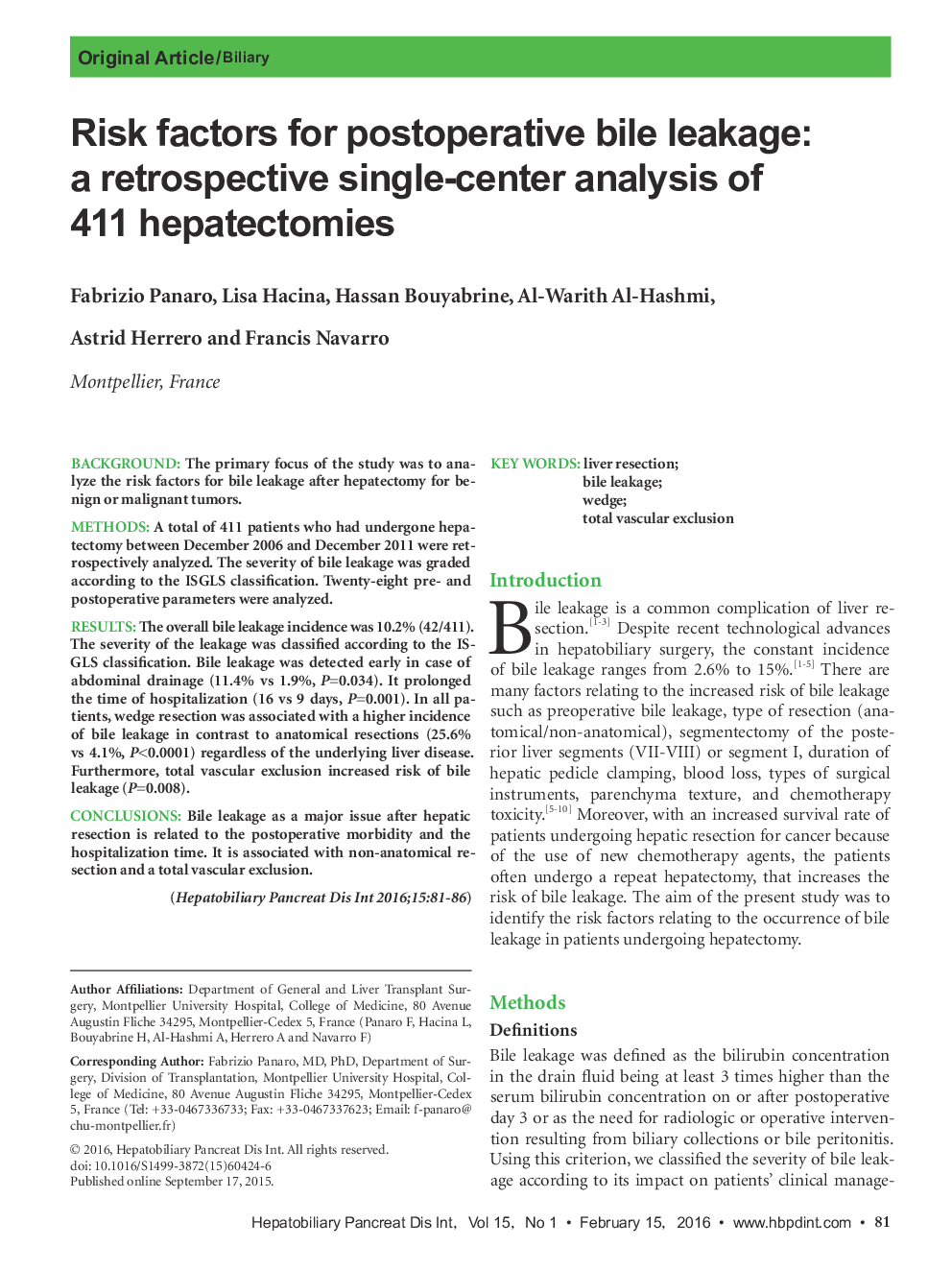| Article ID | Journal | Published Year | Pages | File Type |
|---|---|---|---|---|
| 3337136 | Hepatobiliary & Pancreatic Diseases International | 2016 | 6 Pages |
BackgroundThe primary focus of the study was to analyze the risk factors for bile leakage after hepatectomy for benign or malignant tumors.MethodsA total of 411 patients who had undergone hepatectomy between December 2006 and December 2011 were retrospectively analyzed. The severity of bile leakage was graded according to the ISGLS classification. Twenty-eight pre- and postoperative parameters were analyzed.ResultsThe overall bile leakage incidence was 10.2% (42/411). The severity of the leakage was classified according to the ISGLS classification. Bile leakage was detected early in case of abdominal drainage (11.4% vs 1.9%, P=0.034). It prolonged the time of hospitalization (16 vs 9 days, P=0.001). In all patients, wedge resection was associated with a higher incidence of bile leakage in contrast to anatomical resections (25.6% vs 4.1%, P<0.0001) regardless of the underlying liver disease. Furthermore, total vascular exclusion increased risk of bile leakage (P=0.008).ConclusionsBile leakage as a major issue after hepatic resection is related to the postoperative morbidity and the hospitalization time. It is associated with non-anatomical resection and a total vascular exclusion.
